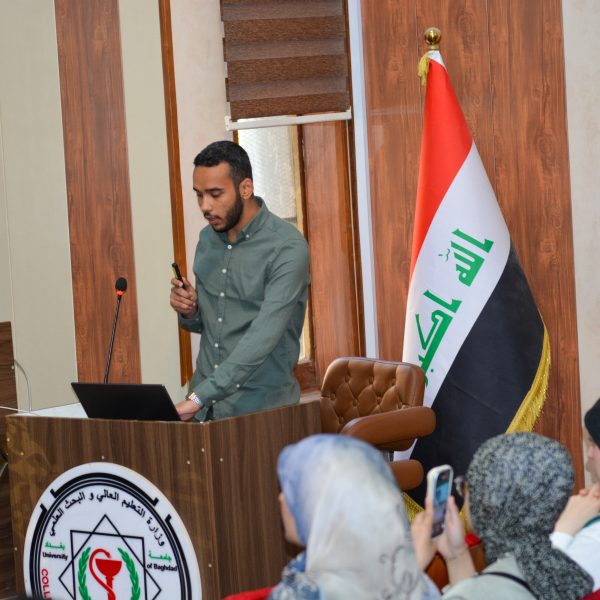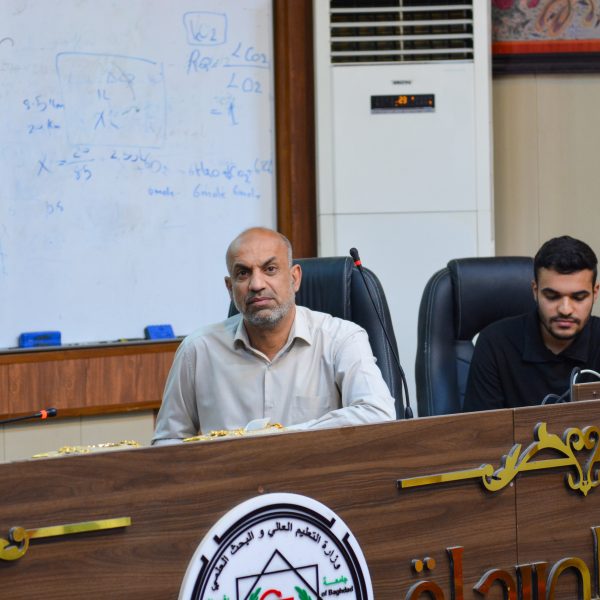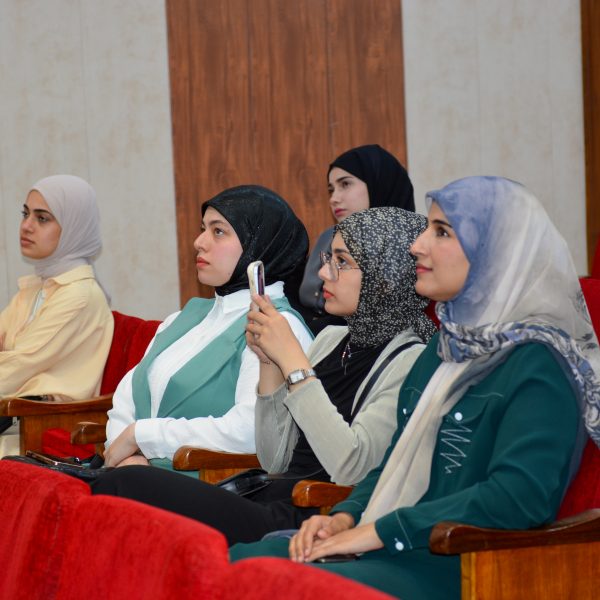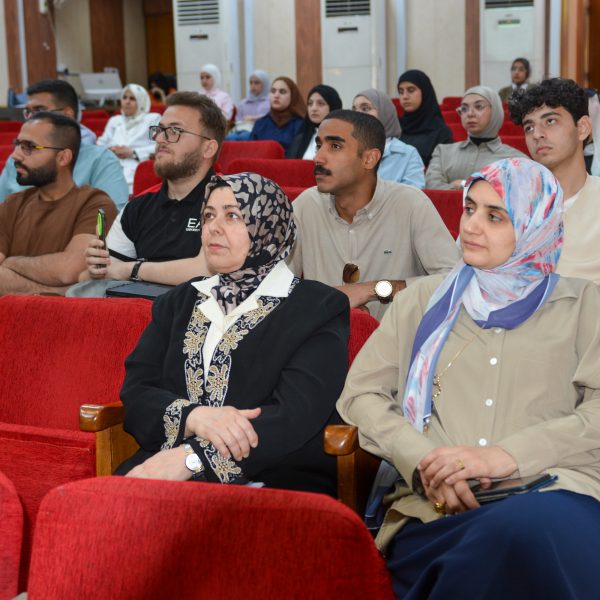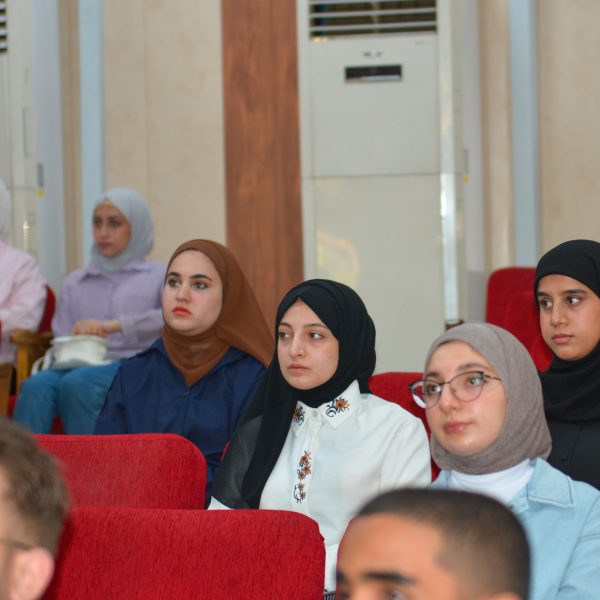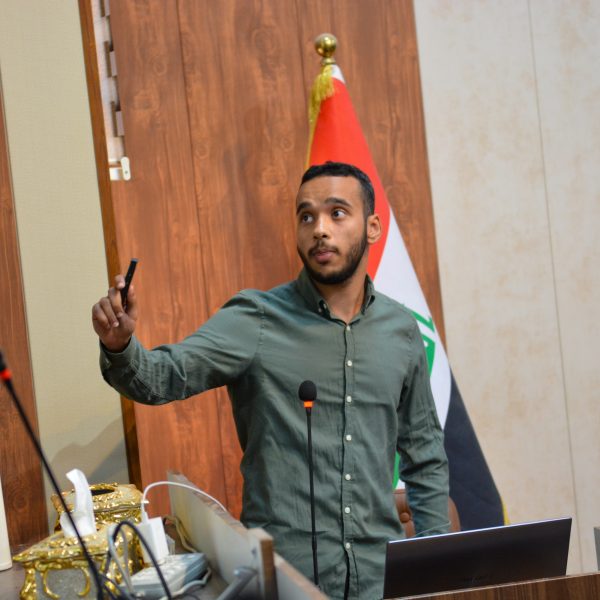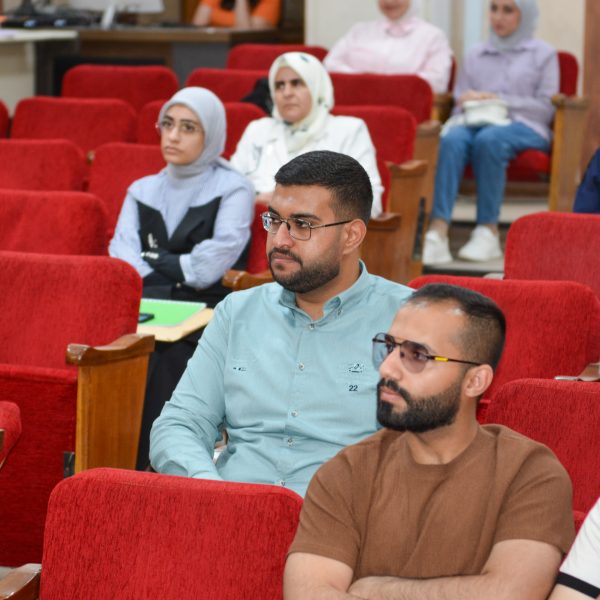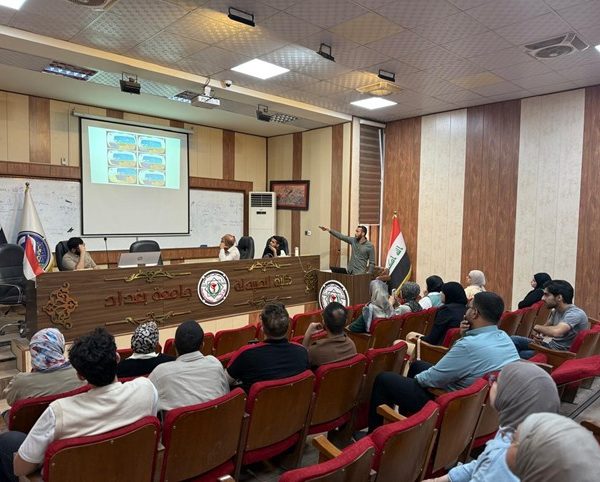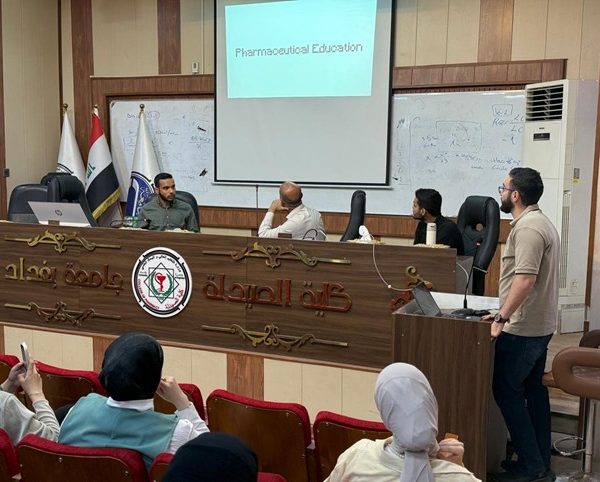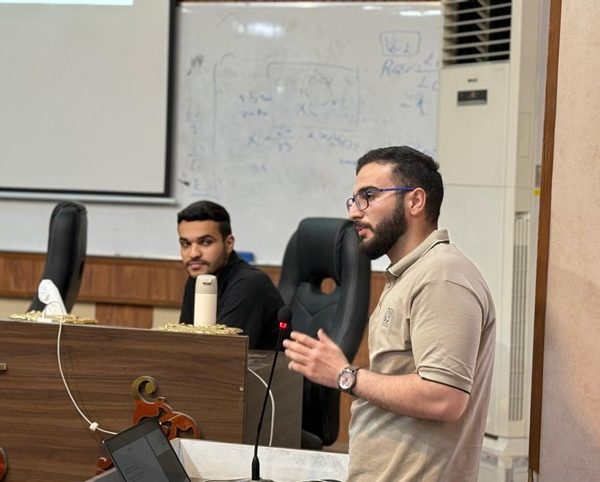Under the supervision of the Dean of the College of Pharmacy, Professor Dr. Sarmed H. Kathem Alkhateeb, the Psychological Counseling and Educational Guidance Unit under the supervision of Assistant Professor Dr. Dheyaa Jabbar Kadhim, held a scientific session entitled (Gamifying Pharmacy), presented by the student of Pharmacine Search Club. The aim of the session was to shed light on the concept of Gamification as an innovative educational tool that contributes to enhancing learning for both students and adults, reshaping the educational process to become more interactive and motivating. The session began with an overview of the history of games and their role in human life, starting from traditional games to modern video games, and how their use has evolved from mere entertainment to effective educational tools. The concept of gamification was explained as the use of game design elements, such as challenges, points, rewards, and level progression in non-entertainment contexts like education and healthcare. The session explored the various applications of gamification in educational settings, especially in the fields of medical and pharmaceutical education, showing how integrating games into the learning process can improve focus, motivate students, and facilitate the understanding of complex concepts. A variety of educational games used in academic institutions were presented, such as interactive simulations, digital quizzes, and learning platforms based on challenges and rewards. Throughout the session, inspiring examples were showcased from international educational institutions that successfully used games to teach medical and pharmaceutical concepts, demonstrating positive results in student performance and increased motivation to learn. Practical applications of these games were also discussed, including training in patient communication, clinical decision-making, and applying scientific principles in a safe and interactive environment.Additionally, the session highlighted the role of games in patient education, particularly for children with chronic illnesses such as diabetes and asthma. Several examples were presented of games specifically designed to educate children in a fun and interactive way about managing their health conditions, such as monitoring blood sugar levels, using inhalers, and recognizing disease triggers.The session concluded by emphasizing that gamification represents a modern and revolutionary approach in the field of medical and health education, combining fun with functionality and contributing to improved quality and effectiveness in education. The session received a high level of engagement from attendees, reflecting growing interest among academics and students in adopting innovative educational methods



